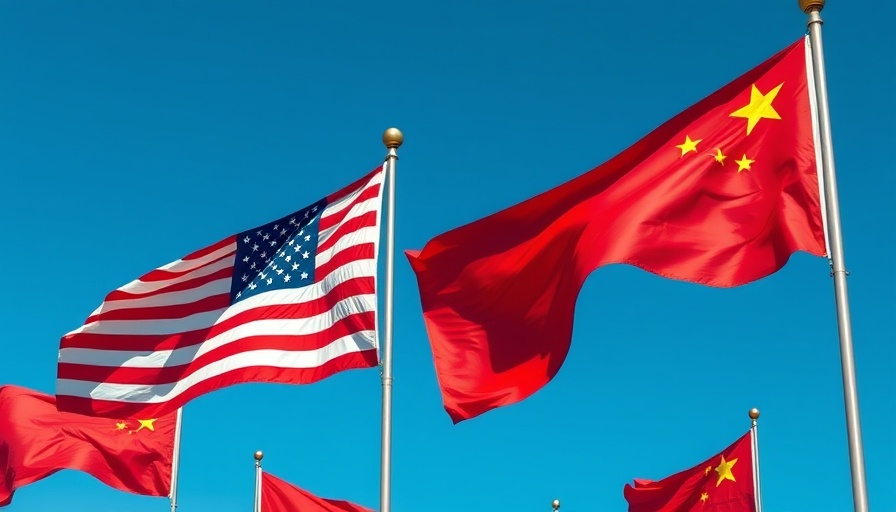
China's Response to U.S. Tariffs: A New Phase in Trade Tensions
In a bold move, China has announced that starting next week, it will impose a staggering 34% import duty on all U.S. goods. This decision comes as a direct counteraction to President Donald Trump’s recently imposed 34% reciprocal tariffs aimed at Chinese products. The Xinhua News Agency reported that the new tariffs will be effective from April 10, impacting various sectors of the U.S. export market.
The Broader Implications on Global Trade
The Chinese State Council’s Tariff Commission condemned the U.S. actions as “unilateral bullying” that undermines not only China's interests but also threatens global economic stability. Furthermore, China has initiated a lawsuit against the U.S. at the World Trade Organization (WTO), arguing that the tariffs violate international trade rules. This situation signals an escalating trade war that could affect cross-border trade dynamics and raise prices for consumers globally, illustrating the interconnectivity of the world economy.
Market Reactions: Falling Futures
In response to the announcement, U.S. market futures experienced a sharp decline, with the Dow Jones Industrial Average plummeting nearly 2.9%. The S&P 500 and tech-heavy Nasdaq futures also fell significantly, reflecting investor anxiety over the potential implications of these retaliatory tariffs on the broader economic landscape.
What This Means for Exporters and Importers
For exporters and importers, this escalating trade conflict may necessitate adjustments in supply chains and pricing strategies. Businesses engaged in e-commerce and cross-border trade must stay informed and agile, finding innovative ways to navigate the complexity of global tariffs.
Understanding these evolving trade policies is crucial for sustaining operations in the international market. As tariffs reshape commerce, exporters can harness resources such as the African Continental Free Trade Area (AfCFTA) to explore new opportunities and partnerships.
Looking Ahead: The Future of Trade Relations
The ongoing tension between the U.S. and China raises critical questions about the future of global trade relationships. Businesses should closely monitor these developments, which can significantly impact international trade policies. By staying informed, they can better position themselves in a digital economy increasingly influenced by government decisions.
As we delve deeper into this trade dispute, it is essential to recognize that while challenges exist, new pathways for growth and collaboration are also on the horizon.
 Add Row
Add Row  Add
Add 




Write A Comment